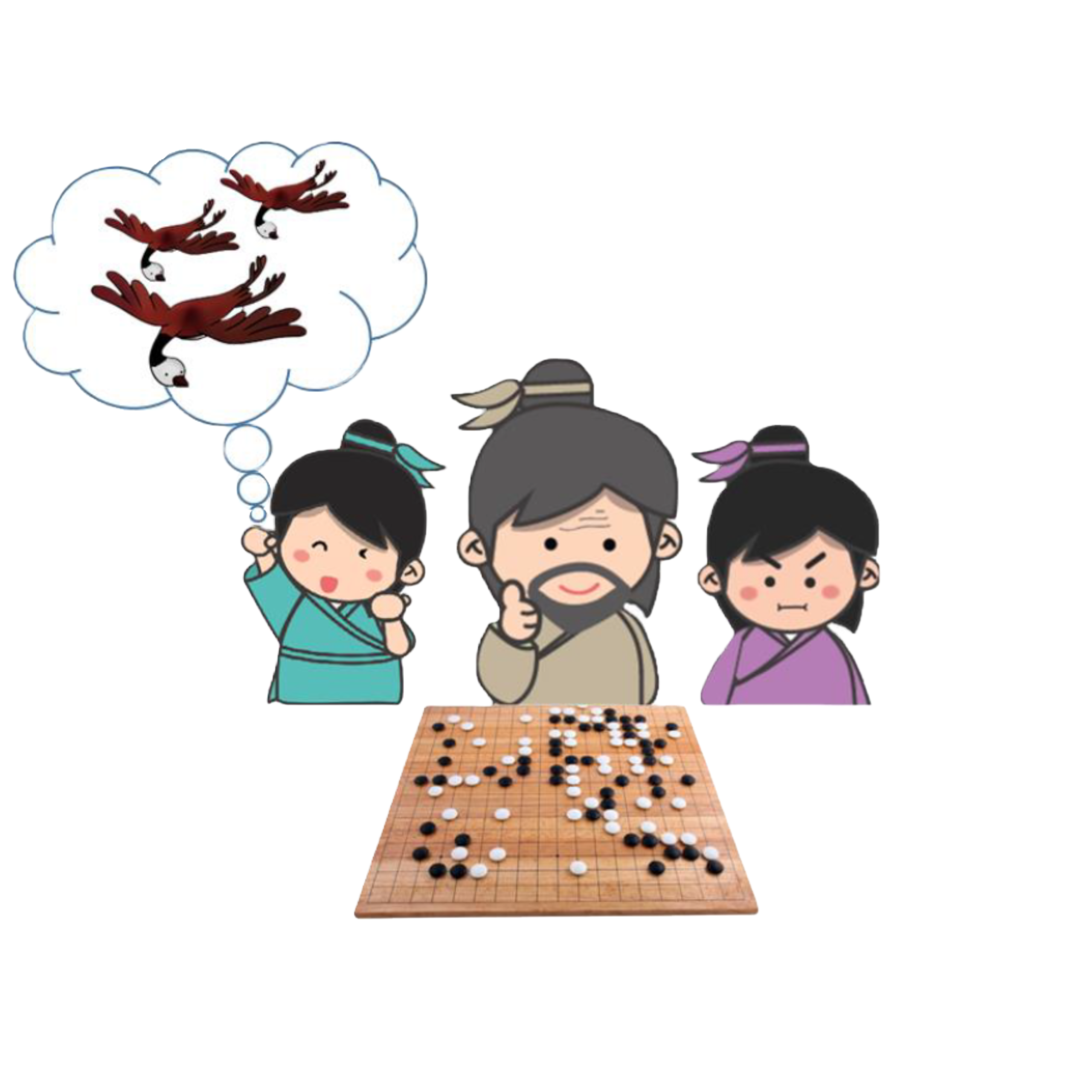Read paragraph 1.
"Once upon a time, there was a famous chess player named Yi Qiu. He was highly respected by people because of his superb chess skills in weiqi."
Read paragraph 2.
"Once he was teaching two students the same skills in a class."
Read paragraph 2.
"One of the students listened to his words very carefully and had full concentration in class."
Read paragraph 2.
"When he attended Yi Qiu's class, he always looked at the fields outside the windows, and dreamed of shooting and catching wild geese which were flying in the sky."
Read paragraph 2.
" 'If I have a bow and some arrows, I will shoot the wild geese and cook them.' "
Read paragraph 3.
"After a few months, Yi Qiu asked his two students to play a game of weiqi in order to see how well they learnt."
Read the sentences carefully to understand their meanings.
Read paragraphs 3 and 4.
"However, he lost in the last few rounds because of his poor chess skills ... 'You need to practise hard and concentrate if you want to master the skills well.' "
Read paragraph 3.
"On the other hand, the attentive student gradually fought back in a calm and thoughtful manner."
Whole-hearted Devotion
Score Sheet
| Questions | Results |
|---|---|
| Question 1 | |
| Question 2 | |
| Question 3 | |
| Question 4 | |
| Question 5 | |
| Question 6 | |
| Question 7a | |
| Question 7b | |
| Question 7c | |
| Question 7d | |
| Question 8 | |
| Question 9 | |
| Total |
10. What is the moral lesson of the story? Based on the story, which Chinese saying can you think of?
Extension Activity
Watch the video clip "My Journey from Poverty to College", which is about how Elvis Cao, a young Chinese scholar in renewable energy and a PhD candidate at Cornell University, USA, has changed his fate, become knowledgeable and risen above poverty through perseverance and determination.
Acknowledgements: The China Current
https://chinacurrent.com/story/20101/my-journey-from-poverty-to-college
What was the biggest dream for Elvis Cao in his childhood? What did he do to make his dream come true? What have you learnt from him? Think and share your ideas or experiences with your parents or classmates.
